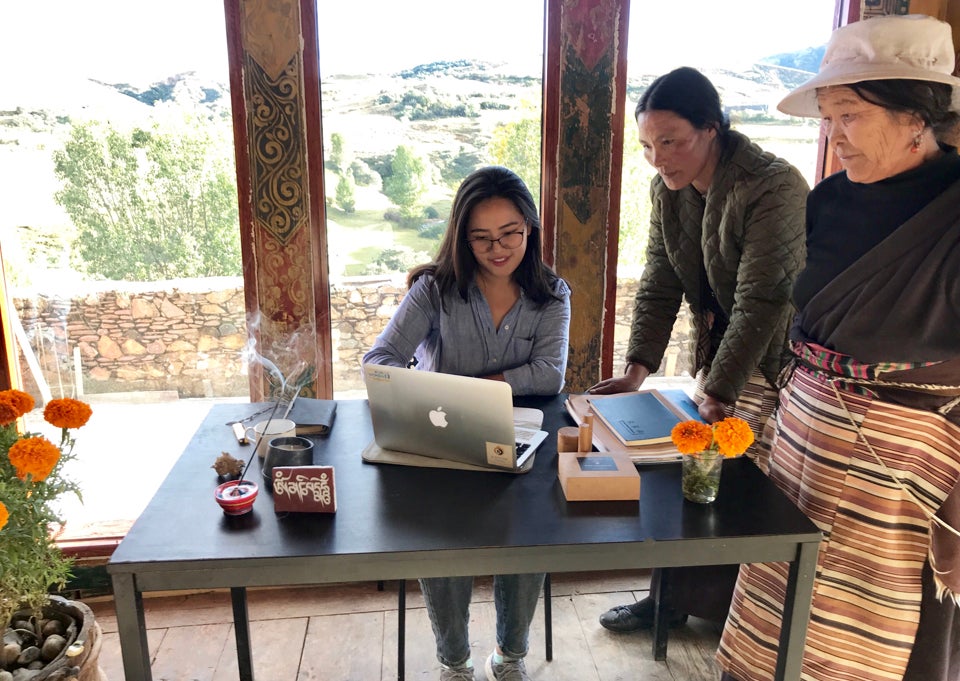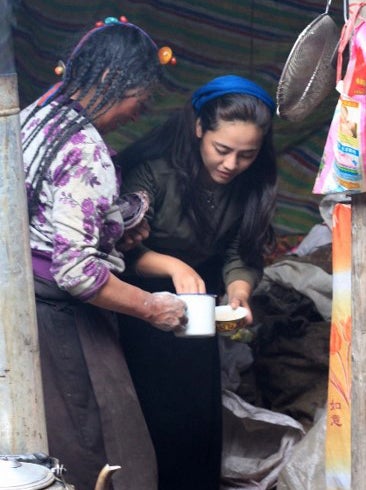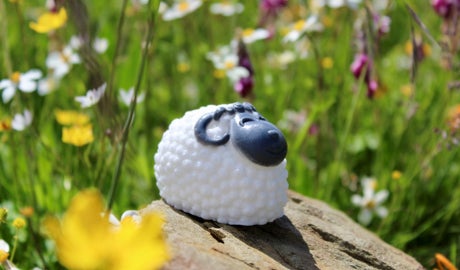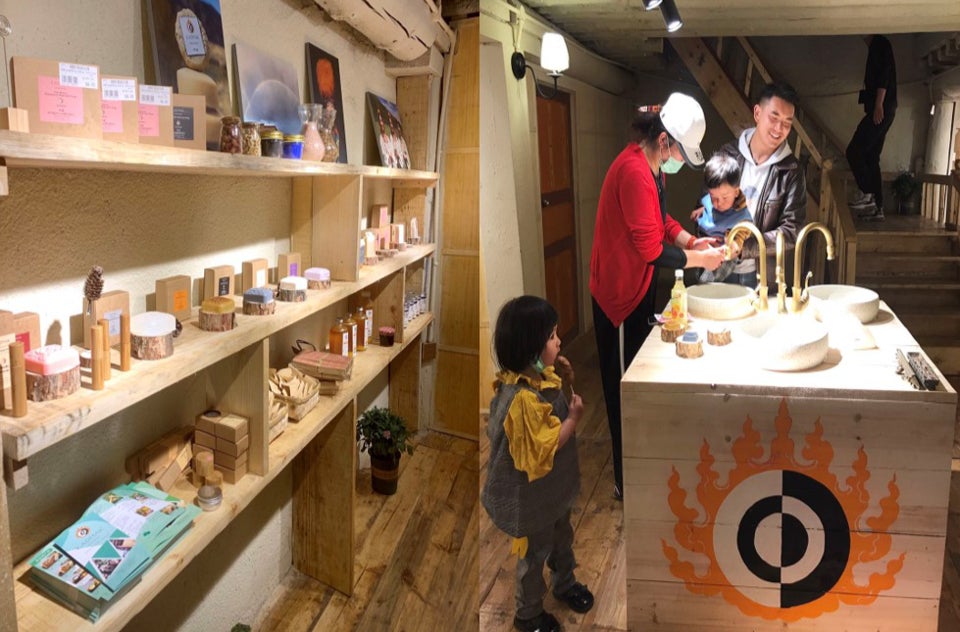SheBouncesBack: Supporting natural livelihoods – and healthy handwashing – in China’s highlands
Date:
Author: Di Liu
Including women at the heart of crisis recovery efforts will boost economies and remove barriers to the creativity, perseverance and success of female entrepreneurs. At #SheBouncesBack, @UNWomen invites women who own small and medium-sized businesses in China to share their stories of fighting the pandemic on the economic front lines. Please join us and share your story!

After getting a business management degree in France, Sonam Chodron couldn’t wait to use her new knowledge to help the people of her hometown near Jiawa in Litang county, perched amid snow-capped mountains and rainbow-clad lakes and forests at the junction of Sichuan, Tibet and Yunnan provinces in China. To provide jobs for female highland herders while preserving Jiawa’s unspoiled beauty, Chodron founded Kadhak, a sustainable organic products brand. Working with local craftspeople, Kadhak turns natural materials like yak milk, honeycomb and wild herbs into products like jam, balm and handmade soap.
Although, as Chodron says, “nature pause pressed the pause button on our lives” when the coronavirus pandemic hit, she used the pause to review the company’s operations, assess consumer needs, develop innovative products and prepare to open new stores. She also is developing a community education programme.

Chodron, 26, shares her story of how she and her company quickly moved from pause to “play”:
“Kadhak is a Tibetan word meaning ‘primordially pure’. It also symbolizes the beginning of all things and the goodness of nature.
There are more than 2,000 villagers in Jiawa township, but there are few local jobs available. I just wanted to do something for my highland hometown so that the local women could have a more stable income. When I looked for a project, I found that people in the Tibetan areas had many skills that I could make use of as an entrepreneur, and the natural environment was a rich source of opportunity. Yet I knew that care and innovation would be needed to ensure that local raw materials were shaped to meet the needs of a modern lifestyle without destroying the local ecology.

During the epidemic, our work was suspended for about three months and I was quarantined in the city of Chengdu. I couldn't wait to return to the Tibetan highlands but nature had pressed the pause button on our lives. After the initial panic and anxiety, I started to get used to such a slowed life and enjoyed the free time to think.
Our company is still very young, and it’s helpful to be able to stop and think about its development from time to time. There are currently 16 people on the team, 12 of whom are local women, and all of them are relatively young. Taking advantage of this window, I reassessed the company's business and consumer needs, and considered how to change our marketing approach now that people would be going outside less. I discussed ideas with peers and friends in my network, mainly by WeChat, and we shared experiences and technologies, which was very inspiring. I realized that the pandemic control measures would likely become a ‘new normal’, and that our company could only survive by meeting these new needs and changing our marketing approach.

We immediately enhanced the sterilizing and disinfecting qualities of our products. Considering the current consumer need for toiletries and sanitary products, we developed our own rinse-free hand disinfectant and focused on products to help young children develop handwashing habits.

Following these adjustments, sales of our yak milk handmade soaps continued to rise, in and outside of China, and the company's revenue almost doubled. We are currently looking to supply our care products to hotel partners. We also took the bold decision of opening a new store on a popular shopping street in Litang county though we didn’t have much hope for its near-term performance; we just thought it was something we had to do in order to grow. Yet, surprisingly, sales performance has not been at all bad, and our store has become a hub for people to stop by and wash their hands.
Our company and I are recovering from the pandemic crisis step by step, and I feel like we’ve moved onto a new track. I am fully aware that there are new challenges ahead, but as the saying goes, ‘Everything that changes will find a way forward.’ I’ve learned from the crisis that if we keep thinking and exploring outside of the box, new opportunities will come our way.”

Chodron attended UN Women China’s International Gender and CSR [Corporate Social Responsibility] Conference in Chengdu in 2018. She lives with her sister and mother in Chengdu but constantly travels to Jiawa to look after her enterprise. Chodron and her team have invested significant time and resources in developing her hometown’s organics industry and preserving both the local economy and natural environment because they insist on zero-waste and full environmental protection.
In her book Harvest of Hope, the British conservationist Jane Goodall said that every purchase is a vote. The world needs many more votes for production practices that restore the health of the environment – and more women like Chodron, who have faith that those votes will come.
Supporting women-led companies and procuring from women-owned enterprises
Research has found that female entrepreneurs have a much steeper road to travel than their male peers. They tend to have less access to markets, financing and networks because of gender roles and stereotypes. As a female small business owner, Chodron has had to work extra hard to access markets and establish sustained and stable procurement channels with big companies.
Women-owned small and medium-sized enterprises can be supported with subsidies, government-guaranteed loans, and deferrals or exemptions from tax and social insurance premiums. Research indicates that flexible loan repayment schemes can help. To ensure the survival of women-led enterprises, government procurement procedures should also target women-led enterprises and associations. In rural areas, this can also support the local economy, along withemployment opportunities and stable incomes for female farmers and informal agricultural workers.
The #SheBouncesBack campaign is part of the UN Women project, Supporting Women to Recover from the Socio-economic Impacts of COVID-19, supported by the Rockcheck Puji Foundation. The project aims to help women-owned small and medium-sized enterprises and female employees by increasing their capacity and resilience while raising public awareness of the need for gender equality in business. #SheBouncesBack was launched on World Entrepreneurs Day on 21 August 2020 and reached more than 940,000 people in its first two weeks via WeChat and Weibo.
Note: UN Women does not endorse any of the companies, brands or products mentioned in the campaign.